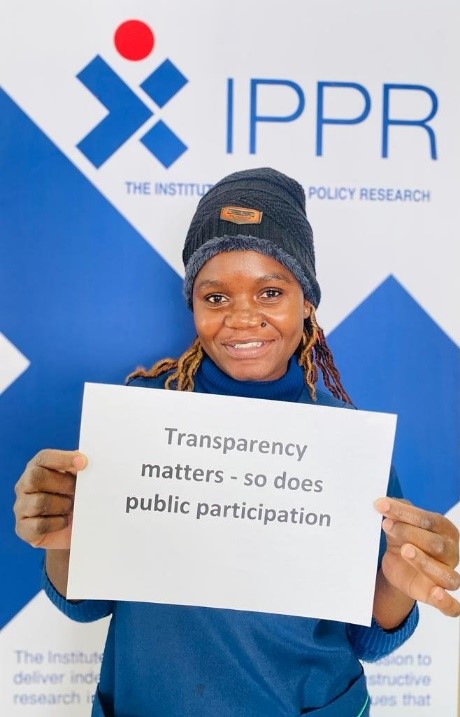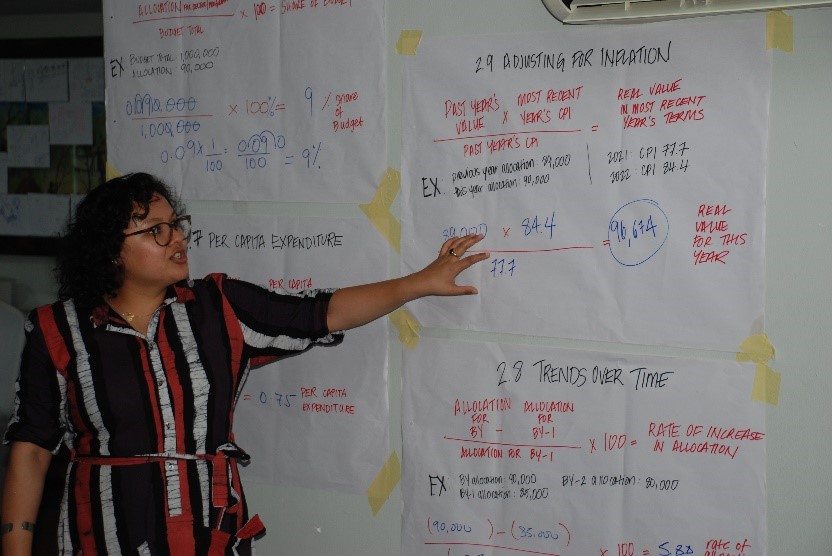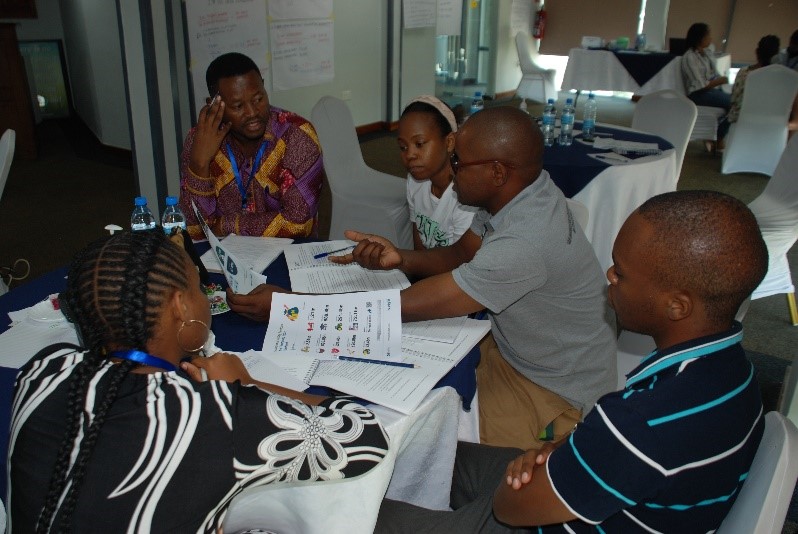Sep 8, 2022
The Situation

International Budget Partnership (IBP), an international NGO focused on fiscal transparency and accountability across 100+ countries, was given a large grant from the European Commission for the Collaborating on Open and Accountable Budgets (COAB) project. The overall objective of the COAB project is to build the conditions for transparent, inclusive, and accountable public budgeting through improving access to information and participation, and strengthening the ability of civil society to actively participate in budget processes.
Part I of the 2-part program was a robust, 10-week, synchronous facilitated online learning event offered on a learning management system in 2021. Part II was a 5-day workshop held in-person in each country in 2022.
The Journey
Global Learning Partners’ (GLP) role in Part I of this work was to provide input and support on the design of the virtual training. For Part II, our role was to lead a process with the IBP design team to develop the 5-day in-person workshop. In December 2021, we convened for 3 days in person in Washington DC to map out the flow, prioritize content, and design learning tasks for this learning event.

The Challenges
Along the way there were four main challenges to work through: COVID, the reality of hybrid events, the need for in-person convenings, and the scale of this project.
COVID. Originally COAB was supposed to be two in-person workshops – in 2020 and 2022. Then COVID hit and all plans needed to change. IBP purchased the online learning platform Ruzuku, hired GLP to train staff in online design and facilitation, and developed a new plan. IBP pivoted!

Hybrid events. Travel started to open up again; however, not for everyone. A new challenge arose: the need to offer hybrid events with some participants meeting in-person and some joining online.
In-person convenings. Our design convening in December 2021 included international team members traveling from overseas to join us. For many, this was the first in-person convening since March 2020. For some of the team members, this was their first time back in the office. Emotions and anxiety were present. The in-person COAB convenings in each country shared many of these same obstacles.
Scale. Building capacity within community-based organizations in numerous countries on how to analyze and use budgets to create community change was certainly a challenge. 22 countries. 15 languages. Dozens of organizations and hundreds of participants. Some to be done virtually, some to be done in-person. All against the backdrop of the extending and exhausting COVID-19 pandemic. But, we did it. THEY did it.
This training was held in the following countries: Armenia, Bolivia, Botswana, Burkina Faso, Cambodia, Cote d’Ivoire, East Timor, El Salvador, The Gambia, Honduras, Jamaica, Kyrgyz Republic, Madagascar, Nepal, Niger, Pakistan, Sri Lanka, Tanzania, Togo, Tunisia, Uganda, and Zambia.
The Impact

This training had many parts spread across 2 years, and had to work for various cultures, contexts, and types of organizations. It is IBP’s hope that by the end of this learning program, participants will:
- Appreciate the value and importance of budget work and want to do it
- Think strategically about budget process, analysis, and advocacy
- Gain confidence to incorporate and use budget analysis and advocacy in their work
- Connect with each other to strengthen the budget analysis and advocacy community and continue to rely on each other for resources, advice, etc.
- Plan for individual and collective action that leads to change in policy and practice in the longer term
To date the impact has been:
- IBP has brought together diverse groups of civil society organizations, fostering dialogue, trust, and connection between the groups, and introducing them to budget analysis and advocacy. For the first time, these groups are collectively thinking about advocacy strategies to address transparency, participation, and accountability challenges in their countries.
- IBP has documented significant improvements in open budgeting practices and identified areas for future reform. It has – together with civil society partners – engaged in robust dialogue with governments about specific steps they can take to further improve practices.



